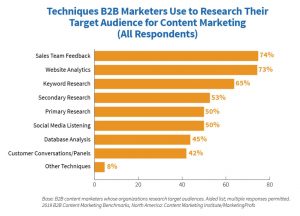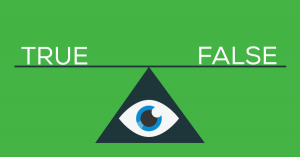— July 23, 2018

coffeebeanworks / Pixabay
Small business owners have a lot on their plate. They not only have to handle all the logistics of running a business, they also must spend time finding ways to best promote their services so that their company can thrive. In today’s world, technology has become the predominant way for marketing and advertising, meaning that the small business owner needs to become tech savvy as well.
Some technologies can present a steep learning curve, but your small business will be all the better for them. To help you on your journey, we’ve gathered some simple tech options for small business owners in this five-part series. First up: Search Engine Optimization.
What Is Search Engine Optimization?
If you’ve started looking at ways to promote your business (especially if it’s online), you’ve probably heard of SEO. Almost every guide on drawing in customers includes some mention of SEO – and that’s because it’s essential to success. SEO refers to the process of building and adjusting your website to improve webpage traffic and improve visibility through search engines.
SEO for small business is multi-layered. There’s use of keywords, delivery and quality of content, market research, building links, mobile optimization, conversion rates and analytics, and so much more. In fact, looking into all the actions you could take for SEO can seem overwhelming, especially if you’re a small business owner who’s never built a website before.
What Should SEO for Small Business Focus On?
The good news is that even simple SEO practices can give your website an edge in rankings. This means that, even if you’re starting out and don’t have the budget to hire a professional SEO service, you can do some legwork yourself and start reaping search engine benefits. For a small business, you should focus on:
- Your website should be well-structured, fast, and mobile friendly. These elements will encourage users to stay on your webpage, boosting your SEO scores.
- Quality content draws in customers and demonstrates why you’re the best business to fit their needs. In addition to helping with conversion rates, effective content will also make your site look more appealing to search engines.
- Content marketing. Regularly updating content is one of the keys to SEO, as it keeps your website relevant. The use of a blog can give you an avenue for informational content that establishes you as an informed service for customers.
- On-page. Optimizing your page titles and meta-descriptions are some very simple changes you can make without much technical know-how.
- Local SEO. If you’re a small business, your biggest customer base is going to be in the area around you. When doing SEO research, focus on what SEO best practices will appeal to your local area.
- Authority and link building. Whenever another webpage links back to your site, search engines take that as a signal that your site is a quality resource worthy of a higher ranking.
All these components are very manageable no matter your technical skill level. By focusing on these areas early, you are making progress on the pay offs that come with SEO over time.
Some SEO for Small Business Best Practices
SEO best practices are constantly changing as search engines update their guidelines on what makes a website rank effectively. While we may not know the exact algorithms, search engines are often very open about what elements affect how well a site will rank. Google, as one of the leading search engines, tends to be the standard for SEO practices.
Keeping up with changing standards is worth the effort. Here are some current best practices to consider:
- Mobile-friendly. With increasingly easy mobile access to the internet, the importance of a good mobile site has risen. Make sure your mobile site is just as polished as your desktop version. At a minimum, make sure your webpages automatically adjust to fit mobile screens.
- Pop-up ads. Focused marketing pop-ups on your site can be a great way to drive email collection and other parts of your business. However, too many pop-ups can equate to a bad user experience, especially on mobile devices. Limit your mobile pop-ups to legal elements, private logins, and banners only on part of the screen.
- Security. There may just be a one letter difference between HTTP and HTTPS, but it makes a big difference. The S denotes that your website is secure and all transactions are encrypted, which protects information from hackers.
- Social media. Social media is a great way to spread your content – and a great way to improve your SEO, too. The more often users share your content, the better your rankings will be.
- Rich media. No, this doesn’t mean media that is wealthy. It refers to content that is rich in more than text but visual elements like videos and photos as well. Don’t forget to include these elements in your content.
Best practices are always shifting, so you should make a regular effort to follow what changes are taking place so you keep your site up-to-date.
Since there are so many components to SEO, it can take some time to make the necessary adjustments, but it’s worth the effort. Finding the right combination of strategies to fit your business is the key to success.
Still, SEO isn’t the only option available to you. Stay tuned for our next piece in the Simple Tech Options for Small Business Owners series, using pay per click advertising!
Series Articles
Part 1: Simple Tech for Small Business Owners, Part One: SEO
Part 2: Simple Tech for Small Business Owners, Part Two: PPC Advertising
Part 3: Simple Tech for Small Business Owners, Part 3: Google Analytics
Part 4: Simple Tech for Small Business Owners, Part Four: WordPress
Part 5: Simple Tech for Small Business Owners, Part 5: HTML
Part 6: Simple Tech for Small Business Owners, Part 6: HTTP vs HTTPS
Part 7: Simple Tech for Small Business Owners, Part 7: Video Campaigns
Part 8: Simple Tech for Small Business Owners, Part 8: CSS
Part 9: Simple Tech for Small Business Owners, Part 9: Domain Names
Part 10: Simple Tech for Small Business Owners, Part 10: How to Measure Your PPC Campaign
Orginally from Business & Finance Articles on Business 2 Community
(79)
Report Post







4 thoughts on “Simple Tech for Small Business Owners, Part One: SEO”
Comments are closed.